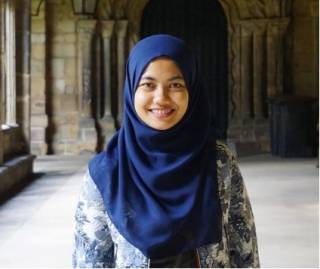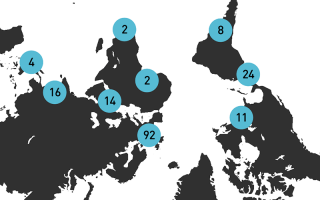
Being at the epicentre of the digital economy transformation and taking an active part in the change that currently is shaping the region is what excites me the most about my current job. I am always curious in understanding technology's role in solving development challenges faced by people in society. In a country as diverse and vast as Indonesia, bridging the gap in the financial and digital literacy sector to ensure equitable growth is a huge challenge. The current COVID-19 spread situation complicates the situation even more, as no one is prepared to face the global pandemic. Nonetheless, getting those who were initially divided to the digital ecosystem has shown promising results in curbing some of the negative impacts of the COVID-19 problem.
I graduated from the Architecture program of Bandung Institute of Technology, Indonesia in 2009. Back then, I got intrigued with urban planning and design policy, so I decided to pursue a career in journalism so I could understand regulatory framework at the macro level. After worked as a reporter for Republika Daily, a national newspaper in Jakarta, I joined a civil society organisation focusing on behaviour change, called Indonesia Mengajar (or Indonesia Teaching Movement). From six years of experience in both entities, I learned that human is a key factor in ensuring the desired transformation, and technology could help as a catalyst. That was the main reason I picked SDP as my graduate school destination which offered a unique approach to active citizenship topic. With the support of Chevening Scholarships from the UK Government, I then became part of The Bartlett Development Planning Unit (DPU) class of 2015/2016.
Finishing my master's degree in SDP has encouraged me to explore discourses that initially sounded foreign, like social justice and gender perspective. Although the process was challenging at times, I truly enjoyed the fieldwork in London and Salvador that helped the students in bringing what we received in the classrooms into context. For the past year, I also realised that learning those delicate theories is really helpful in navigating the decision-making process during uncertain times like in the current pandemic, especially when determining policy for vulnerable groups and marginalised communities.
 Close
Close


